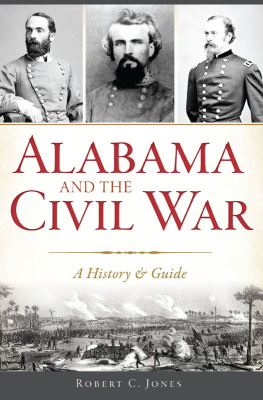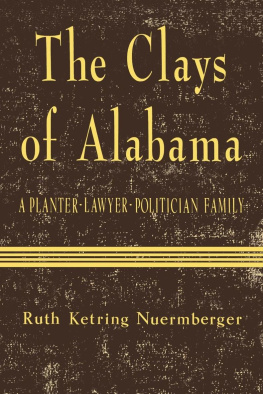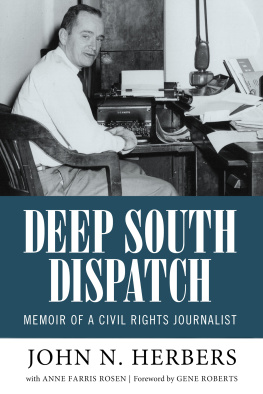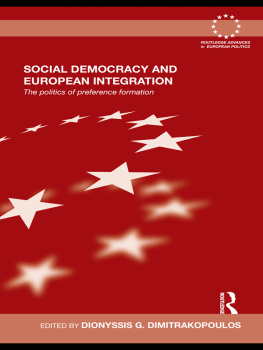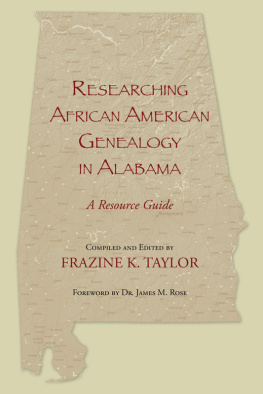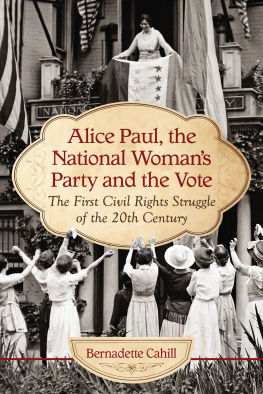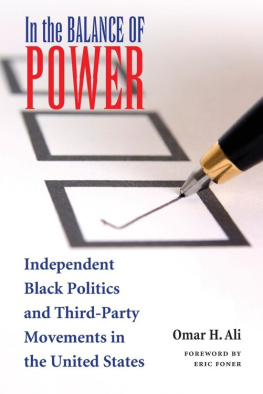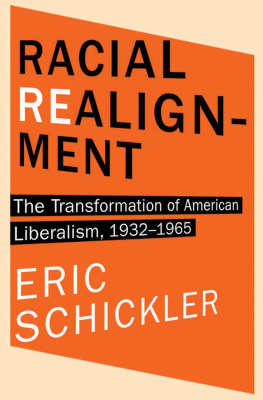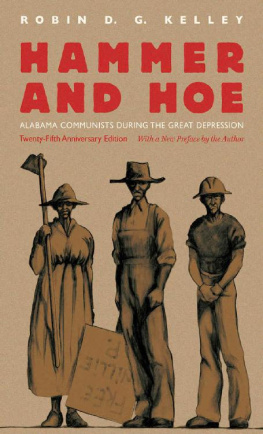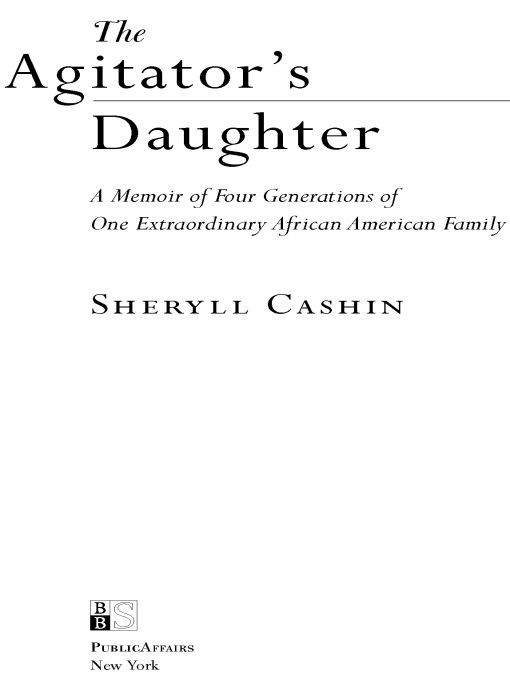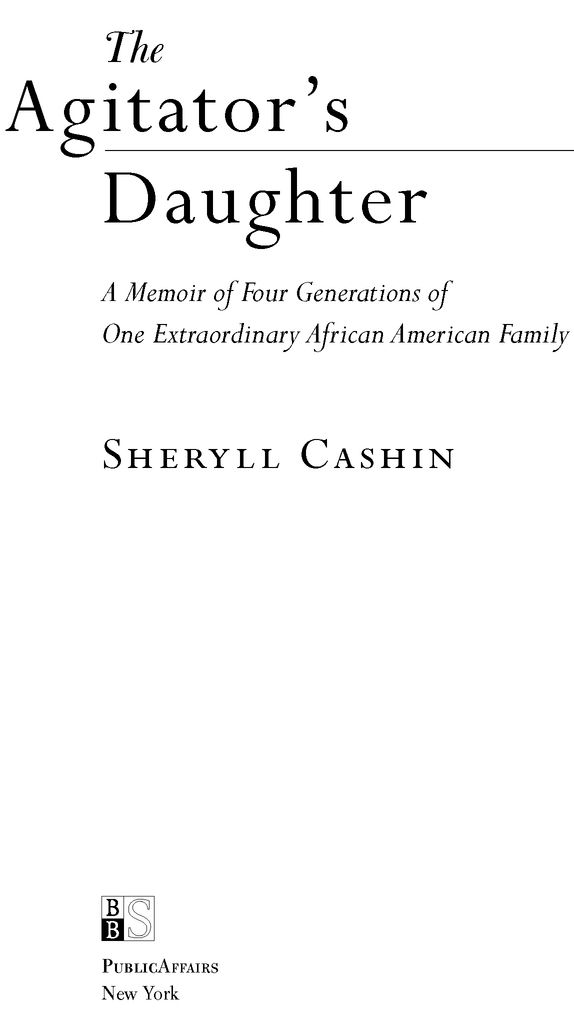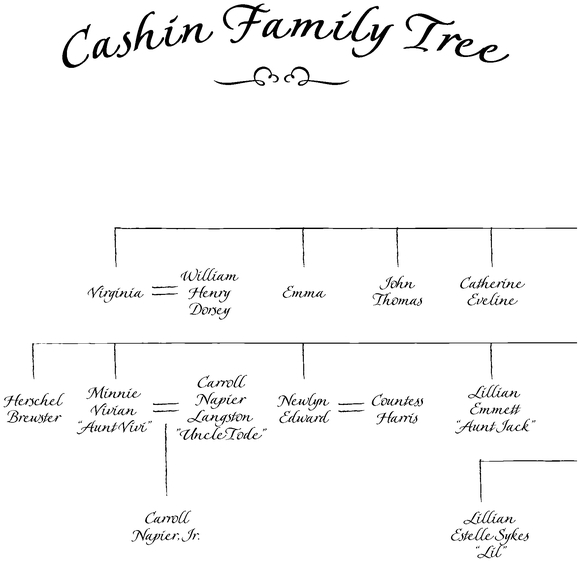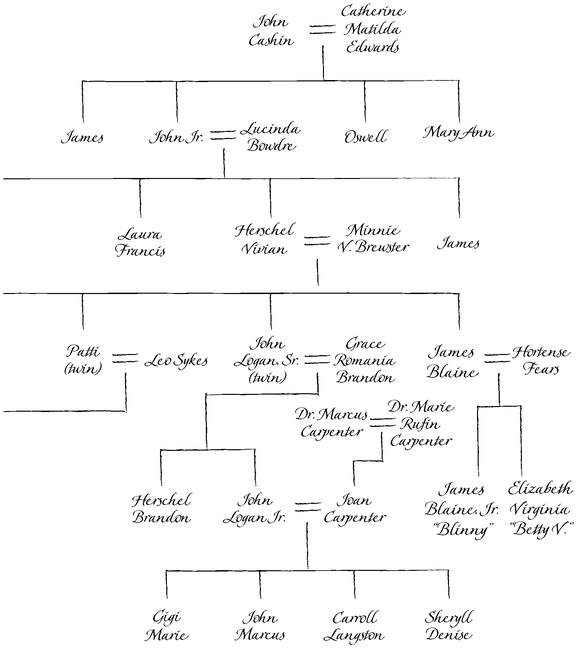Table of Contents
For Marque Clark Chambliss,
my husband, my best friend.
CHAPTER ONE
My Inheritance
Its August 11, 1969. Another hot day in Greene County, Alabama. I am seven years old, about to start the second grade. We are here to watch the swearing in of six men who were elected thanks to the NDPA. Daddy created the National Democratic Party of Alabama because he thought Alabamians deserved to vote for national Democrats rather than George Wallace for president. In 1964, he told me, Alabamians could not even vote to reelect Lyndon Johnson because his name did not appear on the ballot. Daddy also thought that black people needed a new party because they deserved to elect themselves. For the first time since 1816, when the Choctaw Nation had to give Greene County over to white people, some colored people will have a say. We have been driving down to the county a lot this summer. It feels different today, though. We are standing outside the old courthouse in Eutaw, the county seat. Everybody is laughing and smiling. I look up at this chubby woman standing next to me. Her skin is very dark. They call it blue black. But I already know that black is beautiful. Her teeth stick out. She is wearing a loud royal-blue polyester dress and white plastic beads that spread across her large bosom. Her hair is fried greasy straight. Because she is sweating, it is starting to go back to nappy. She is shouting, like all the other people around us. Yes-suh! she says, affirming the inauguration speaker like she affirms her preacher on Sundays. Its a new day in Greene County! For some reason I will remember her and not Senator Birch Bayh, the man who has been invited here to validate this peoples victory. She doesnt have much but her dignity. Today she is feeling her power. Shes the kind of person the big men who own everything in the county never have to reckon with. Now they have no choice but to deal with black folks who can and will vote.
The courthouse looks tired. It was erected in 1869 and is about the oldest thing that I have ever seen. Something mossy and green trickles down its white plaster sides. Inside, I sense newness. In this courtroom black people used to sit with fear in their stomachs, Daddy told me, afraid of what judgment would bring. Today they are feeling like I feel on my birthdays: giddy because they know whats coming. Its time for the NDPA candidates to be sworn in. A white man with sagging jowls sits in the big chair in the courtroom, surrounded by other white, official-looking people. He gives this speech about how he is ready to work with the new (black) men coming in. Hes looking everybody dead in the eye, like he really means what hes saying. Maybe he does want to try. I always want to see the good in people. But Daddy doesnt believe him. He is laughing because this is the same probate judge, Dennis Herndon, who left the NDPA candidates off the ballot last fall. Daddys lawyers had to go all the way to the Supreme Court of the United States to get an order giving the NDPA the right to run candidates throughout the state. When Herndon disobeyed that order, the lawyers went back to the Supreme Court and it ordered a special election just for Greene County. On July 29, 1969, a week after we watched Neil Armstrong land on the moon, blacks shocked everyone in the state, maybe the whole country, when they swept the election.
Something begins to stir in me at the swearing in. Before then, all the NDPA really meant to me was time away from Daddyand licking envelopes. We have a huge dining room table that seats about twelve people the two times a year we use it for eating meals: Christmas and Thanksgiving. Otherwise, that table is always piled with NDPA stuff. Mama gathers us around the tableme and my two older brothers, Johnny and Carrolland some kids from the neighborhood. Mama is our commander and she teaches us how to fold, stuff, lick, and then stamp the NDPA mail. I never think to read what the mail says, or to ask Mama about it. In this courtroom, I begin to understand why my parents care so much about politics and civil rights, why they are always traveling, going to meetings, leaving us behind with babysitters, taking us along when they can. They think that the people of Greene County deserve to be treated like they are somebody and that helping other people be free is what our family is supposed to do.
I understand even more the following year when Dad decides to run for governor against George Wallace. I think he could win. Daddy can do anything. Hes the only black dentist in Huntsville, where we live. He flies his own airplane. He seems smarter than anyone else in the world. The summer and fall of 1970 we are always going down to the Black Belt. Lowndes County. Marengo. Greene. Sumter. Wilcox. I remember most of the names and know that this is the middle part of the state. I also know, because I have been there so much, that it is poor, rural, and black. I always thought it was called the Black Belt because so many black people live there. My teacher tells me the area is named after its dark soil. I know that the dirt in other areas of Alabama tends to be red, so she could be right, but I still have doubts about her explanation.
On trips to the Black Belt we drive the back roads, sometimes in Daddys gold Chrysler 300, sometimes in our camper van. Daddy always does the driving and he always breaks the speed limit, by a lot. Mama sits in the front seat with him. The three of us are in the back. Carroll is one year older than me, and Johnny is one year older than him. Our alliances shift constantly and when they gang up on me I tell Mama or Daddy, which usually works but guarantees that they will exclude me from their next conspiracy.
We play cow poker to pass the time. Grandma Grace, Daddys mother, taught us this game. I count all the cows on my side of the road. Johnny or Carroll count all the cows on his side of the road. Whoever has the most cows when we get to our destination wins. A cemetery on your side kills all your cows and you have to start counting from zero, if your opponent sees the cemetery. A white horse or mule is worth five, but otherwise horses and mules dont count. A white cow costs you thirty points. Its an easy game to play in the Black Belt because most of the land is used for farms and open pastures.
I like these car rides. The green hills roll by. Mostly things are quiet and still. In the heat, the animals move slowly or not at all. Sometimes we pass an old plantation house, like Thornhill near the farm Daddy bought for the Black Muslims. At the top of a hill, white with pillars, the house stands grandly, defying time. I think only of its beauty, never about the slaves who used to work these fields. The car radio is tuned to a soul station. That song, Oh Happy Day, plays constantly. Oh happy day. Oh happy da-ay. When Jesus washed, he washed my sins away. The chorus is the best part, a sea of black voices rising: He taught me hoooow, to liiiiivenight and dayhe washed my sins away. The chorus washes over me. We are Unitarians but I still like the song.


